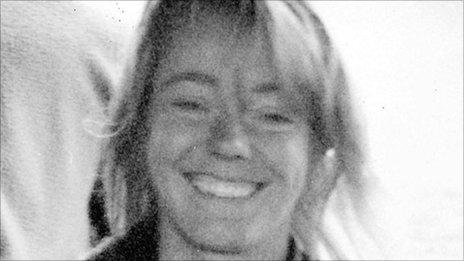Suffolk father who hunted for daughter's killer was a hero, son says
- Published
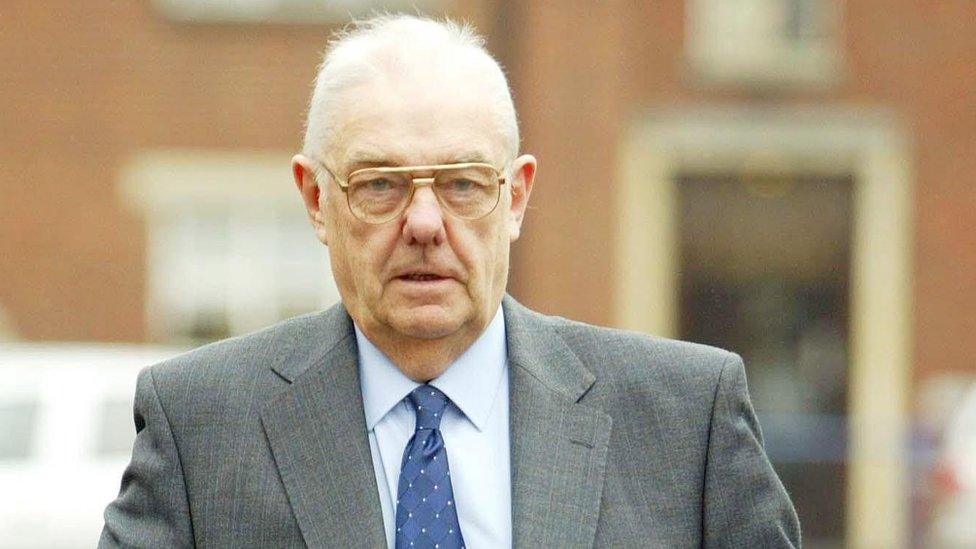
John Ward spent £2m and made more than 100 trips to Kenya trying to find out who killed his daughter in Kenya
A father who spent decades trying to find out who killed his daughter in Kenya was a hero, his son said.
The body of wildlife photographer Julie Ward, 28, from Bury St Edmunds, Suffolk, was discovered on Maasai Mara reserve in September 1988. No-one has ever been convicted of her murder.
John Ward, who spent £2m of his own money investigating the case, died aged 89 earlier this month.
His funeral is being held later in Bury St Edmunds.
It will celebrate not only Mr Ward's life but also that of his wife Jan, who died two weeks before him, and Julie, his family said.
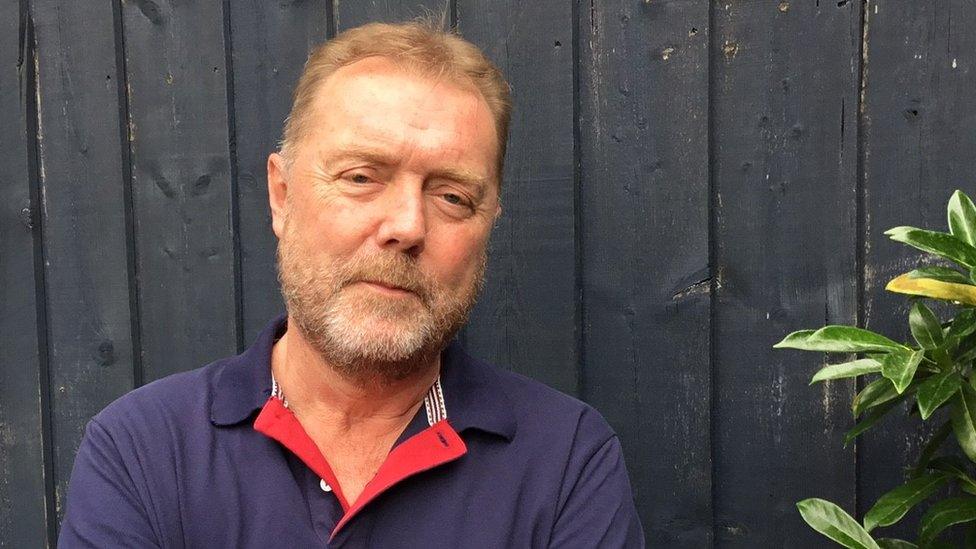
Bob Ward said his father was "absolutely incredible" in his determination to get justice
Bob Ward said the family had "all come to terms" with the fact that his father had not managed to get justice for Julie.
"I think that once the main suspect died, you know at that point that in terms of any trial, it's not going to happen," he said.
"Dad was definitely at ease with what happened, because we know what happened; it's why it happened and why it was hidden that is the problem."
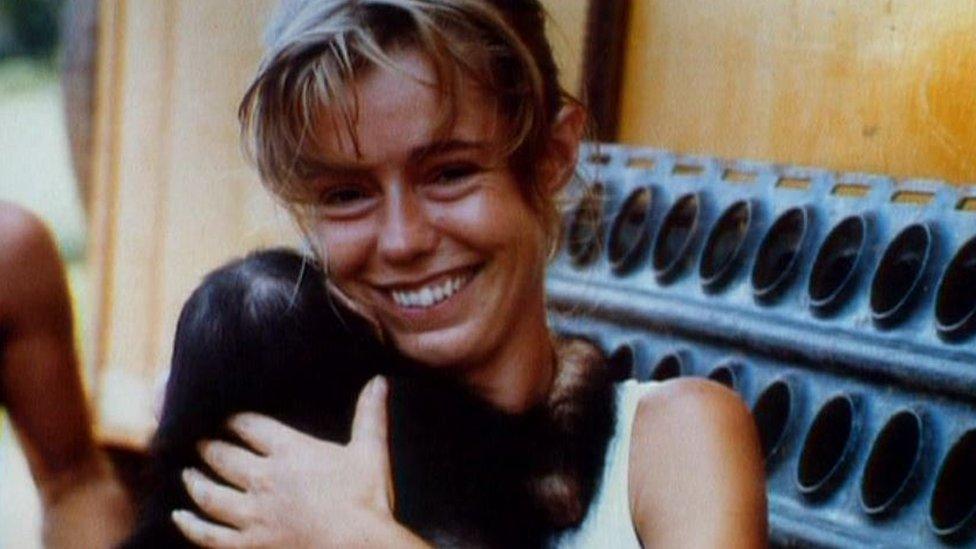
Julie Ward's remains were discovered by her father
Miss Ward disappeared towards the end of a solo photography safari. She was last seen alive on 6 September 1988 before her burned and dismembered body was found by her father a week later.
At the time, Kenyan officials claimed she had been attacked by animals, but they later accepted she was murdered after her father uncovered further evidence.
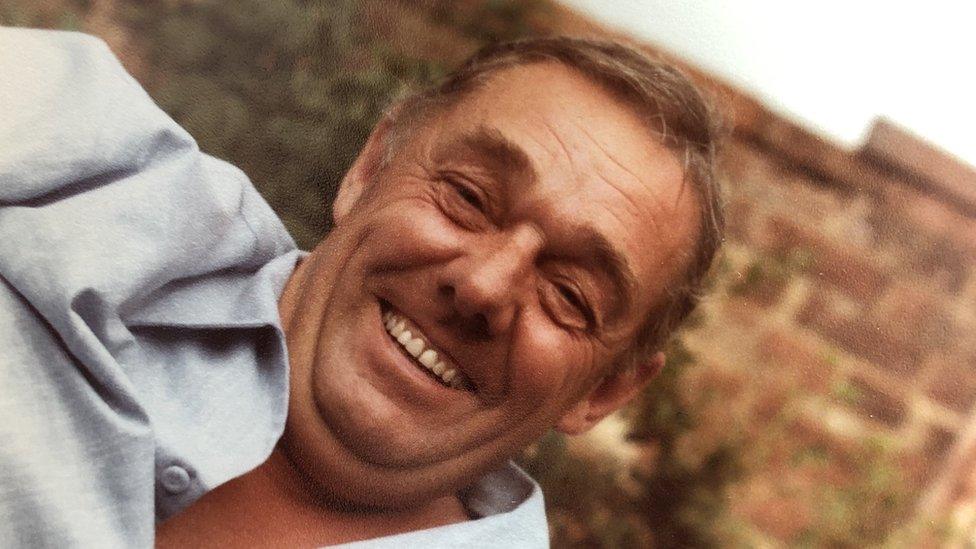
Bob said his father John Ward, pictured, wasn't willing to let anyone get away with the murder
Bob Ward said his father was "extraordinary with detail" and was able to "assimilate a lot of facts and come to a very sensible conclusion".
"It had an effect on the family life but it became part of family life," he said.
"Dad was very good at working on Julie/Kenya, putting it in his box and then becoming a dad again, and going up to the asparagus farm in Norfolk and chatting about football or politics or whatever."
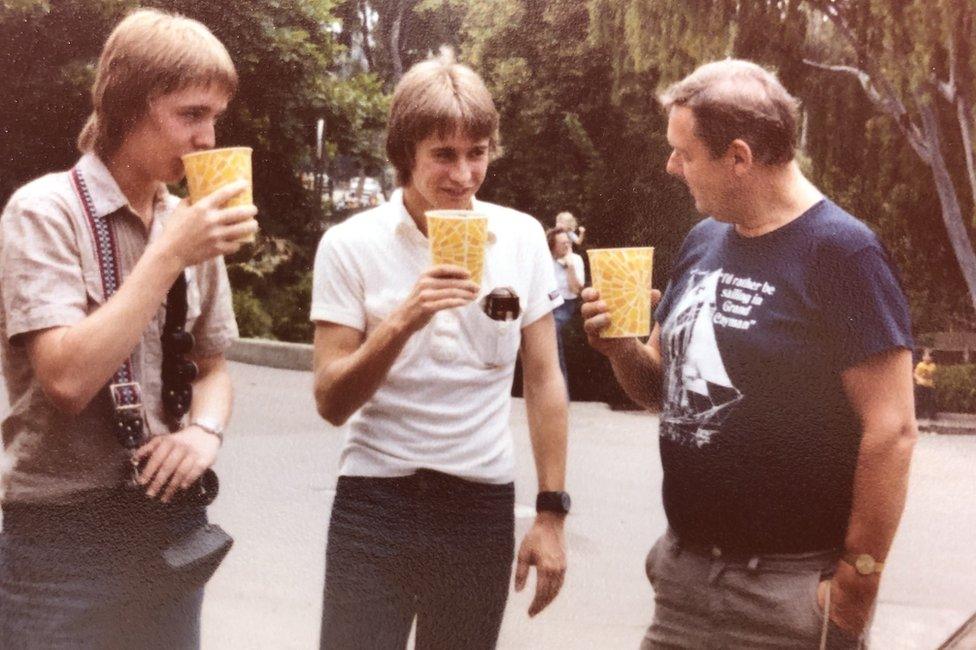
Bob Ward, left, said his father John was a "hero" to his brother Tim, sister Julie and their mum Jan
He said his father's motivation when working on the case was in part "anger" but also remembering the moment he found his daughter's remains.
"He couldn't let somebody get away with it," he said.
"Whether that's anger, a father's love, I don't really know. All I know is that that moment re-inspired him over the years."
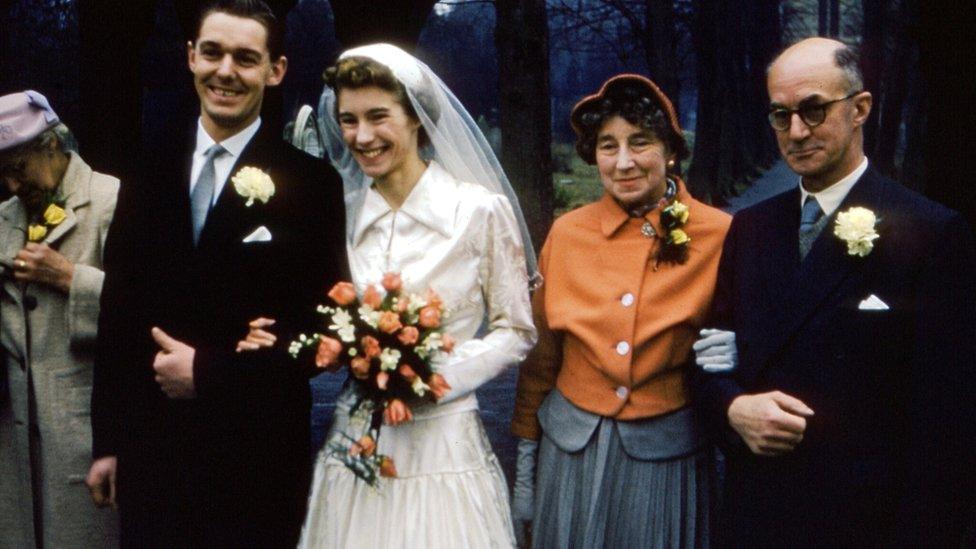
Mr Ward and his wife Jan both died aged 89 within two weeks of each other
Her death was "horrendous", he added, and family life was never the same again.
"Up until that point, I'm playing football on a Sunday morning at the local club and we're going down the pub, and we're just as normal a family as you could be.
"So it did for a while turn our lives slightly upside down... but we all managed to find a way of dealing with it."
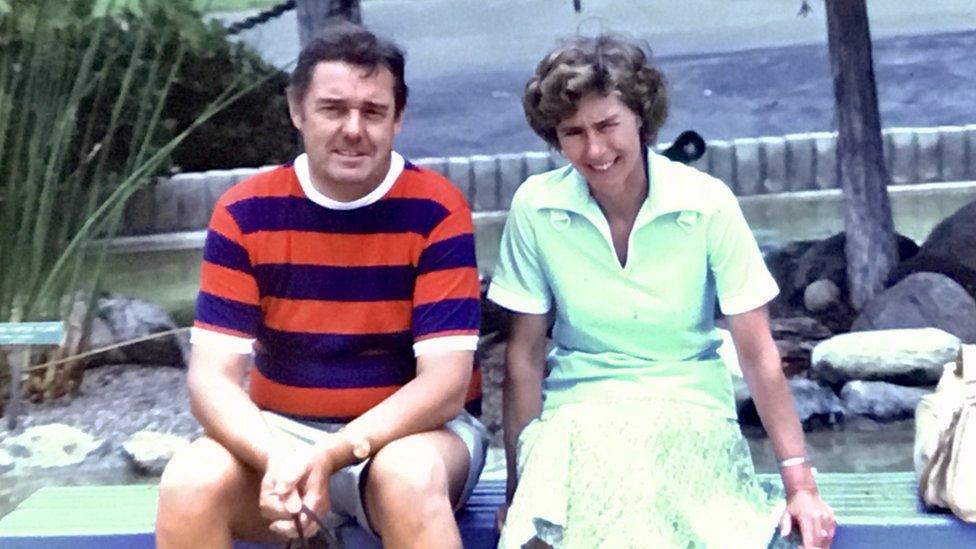
The lives of Mr and Mrs Ward, and their daughter Julie, will be celebrated at their funeral in Bury St Edmunds
Mr Ward had been working with his father, who made more than 100 visits to Kenya trying to hunt down who was responsible, for six years prior to his death, helping him to finish his book.
He plans to get the book published and a documentary is being made.
"Dad didn't understand he was unique, the drive, the bravery, the tenacity, the forensic, he didn't know that that's what other people didn't do.
"We look on him as bit of a hero, he wouldn't understand that, he wouldn't say that, but I can," he said.
"He's a hero to me, to Tim, Julie and mum, I think what he has done is absolutely incredible."
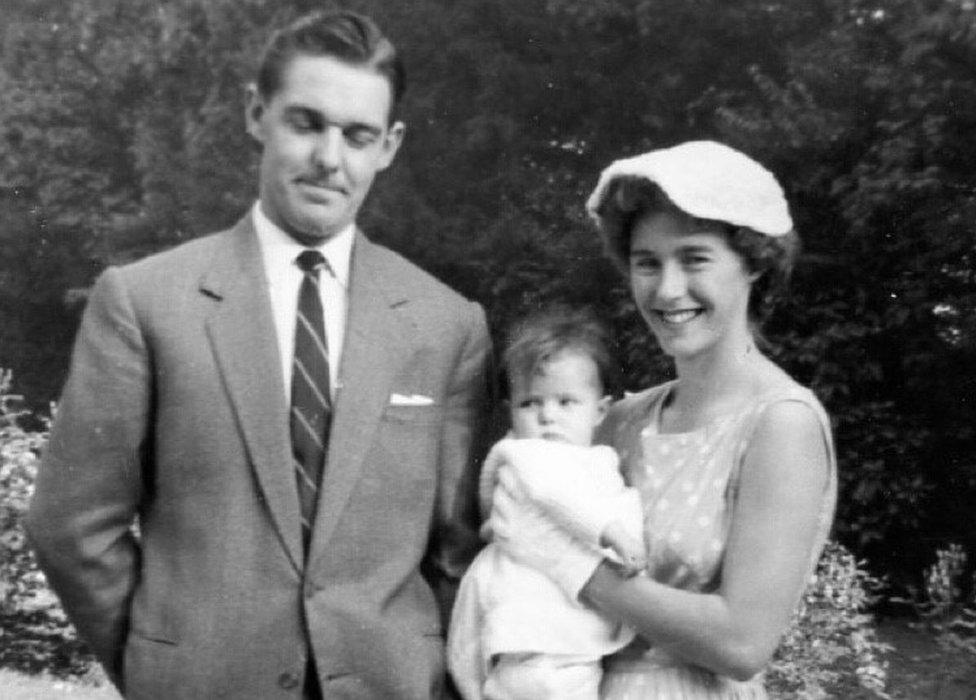
Julie, pictured as a baby in 1961, was 28 when she died
Two game rangers were acquitted of Miss Ward's murder in 1992 due to insufficient evidence.
A new team of Kenyan police officers re-examined the case in 1997 and in 1999 a gamekeeper was tried and acquitted of the crime.
In 2004, an inquest held in Ipswich recorded a verdict of unlawful killing.

Follow East of England news on Facebook, external, Instagram, external and Twitter, external. Got a story? Email eastofenglandnews@bbc.co.uk, external or WhatsApp us on 0800 169 1830
Related topics
- Published13 June 2023
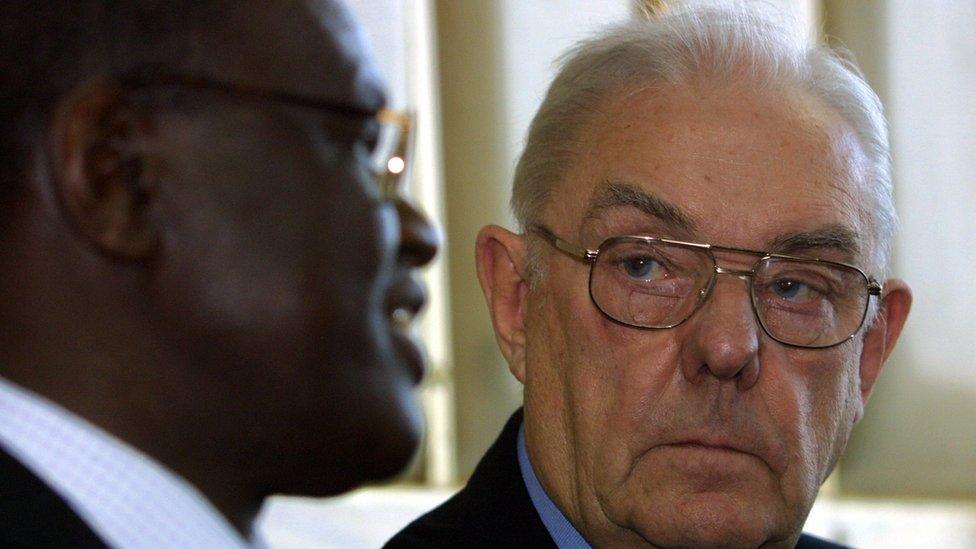
- Published6 September 2018
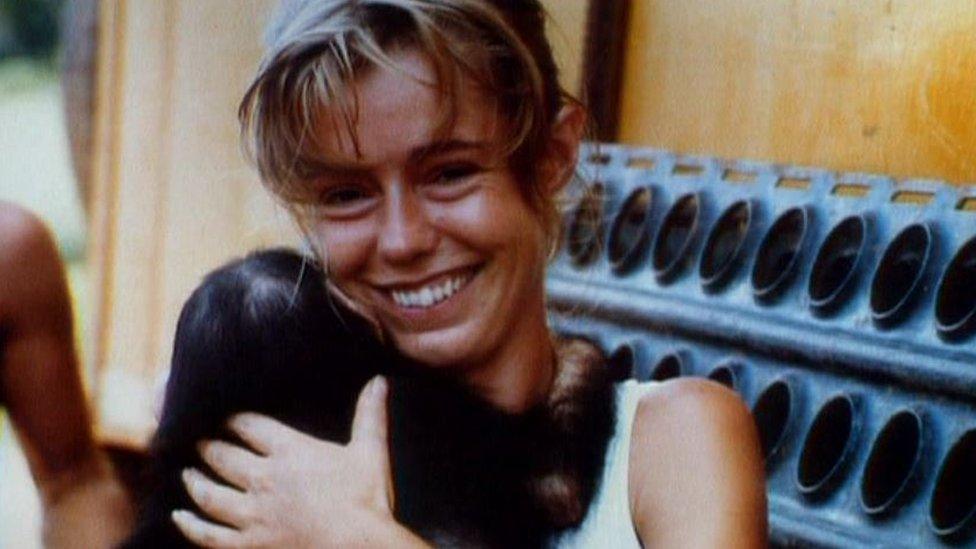
- Published4 November 2011
